Wow.
I finished last week’s episode “Despite Yourself” excited about Star Trek: Discovery’s foray into the Mirror Universe, but unsure about how the new setting would affect the tone and storyline established during the first part of the season. This week’s “The Wolf Inside” very quickly beamed all those concerns into the cold vacuum of space.
Simply put, this was a powerhouse episode — there wasn’t a single scene or line of dialogue in “The Wolf Inside” that didn’t serve a purpose. Whether it was to move the plot forward (at an exhilarating pace), to add valuable depth to a character, or just indulge in some good old fashioned Star Trek technobabble, writer Lisa Randolph’s script was masterful from start to finish.
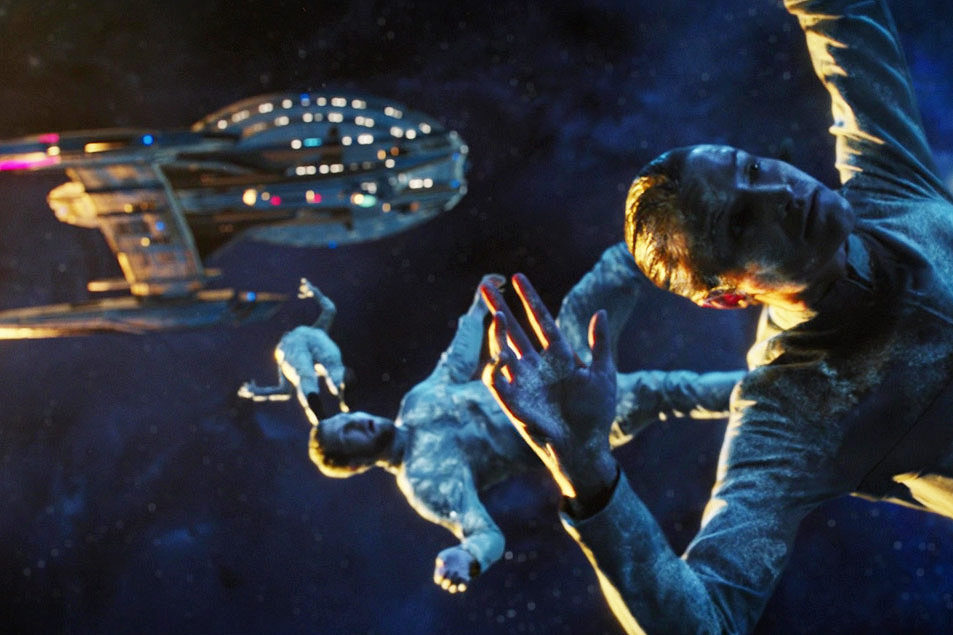
The episode opens with a montage of life aboard the ISS Shenzhou that’s accompanied by voiceover from an exhausted but determined “Captain” Michael Burnham.
She ruminates on how difficult it is to pretend to be someone she’s not without actually becoming the person she’s pretending to be, and the audience can’t help but think about Lieutenant Tyler’s struggles with his dual identity as both a human Starfleet officer… and the finally-revealed Klingon Torchbearer Voq.
Discovery has been leaning heavily on the use of dramatic irony in telling Tyler’s story, giving the audience an omniscient perspective on the action that the characters lack. It’s interesting to note that Lt. Stamets seems to be developing something like omniscience, but because of his deteriorating condition it’s an omniscience that leaves him as powerless to affect events as the audience.
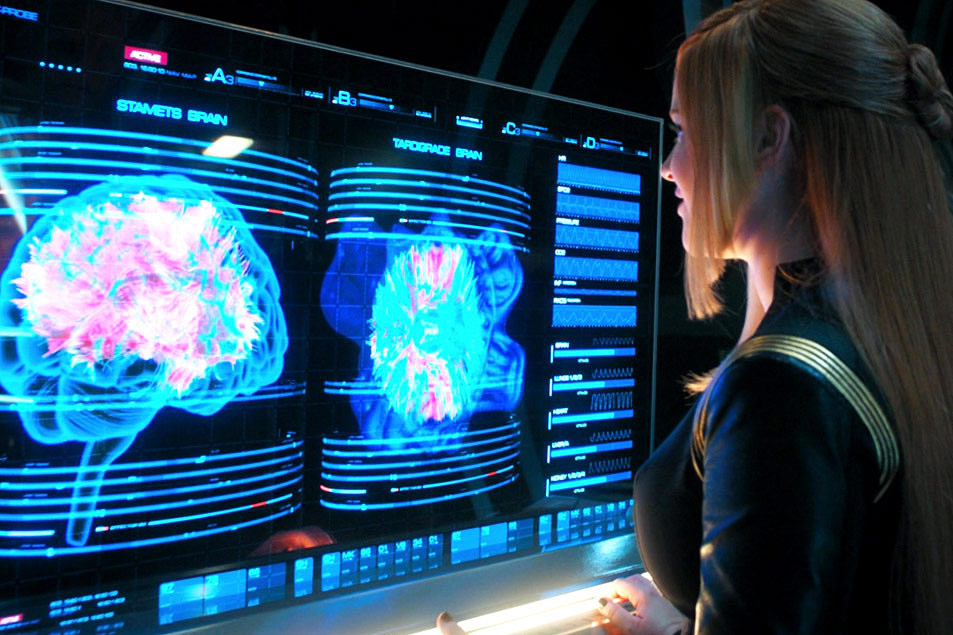
Dramatic irony is a standard storytelling technique, but “The Wolf Inside” takes it a step further, giving other characters deep insight into Tyler’s struggles and state of mind without them realizing it. In a later scene, Tilly explains to Saru that Dr. Culber’s death “wasn’t a murder… [but] an unfortunate consequence of an addled mind trying to reach beyond a cloud of confusion.”
She thinks she’s describing Stamets’ compromised mental state, and while she’s right about the ‘what,’ she’s wrong about the ‘who.’ Tyler’s internal landscape is unknowingly refracted and reflected through the struggles and motivations of the other characters, giving additional symbolic heft to the Mirror Universe setting. Both Tilly and L’Rell try to guide their lost comrades back through the fog of confusion, but where L’Rell chants a Klingon prayer, Tilly launches into technobabble.
In both cases, the attempts seem to the outside observer to fail, when in fact something unseen has been knocked loose. Tyler begins to find more of Voq lurking around the edges of his mind, and Stamets encounters his Mirror counterpart in the mycelial forest.
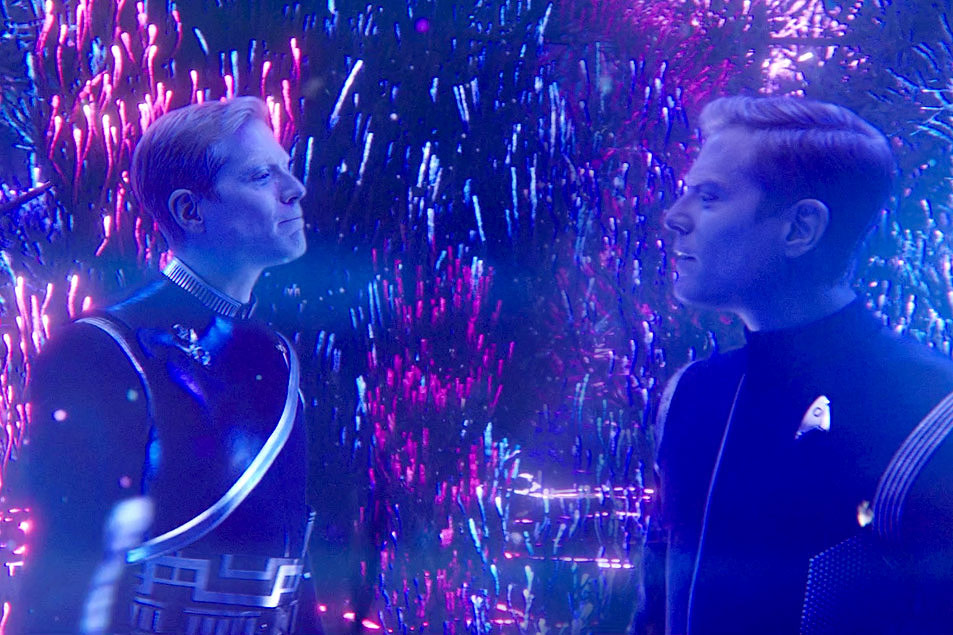
I don’t think the Mirror Universe has ever played with duality in such a sophisticated way, and this sophistication isn’t limited to its handling of plots and dramatic devices. Mirror episodes in previous Star Trek series have usually taken the obvious route: What if the good characters are bad, the quiet assertive, the powerful powerless.
“The Wolf Inside” takes this a step further, presenting us with characters whose Mirror selves aren’t much different from their prime-universe counterparts, but who end up seeming different simply because their context has changed.
The most apparent example of this is Mirror Voq, known in this universe as the Firewolf. Defying a direct order from the emperor, instead of destroying the Firewolf’s base from orbit Burnham and Tyler beam down to the planet’s surface.
Hoping to gain insight about how to quell the Human/Klingon conflict taking place in the Prime universe, Burnham asks how any Klingon — much less one as fiercely proud as Voq — would consider members of other species to be his equals.
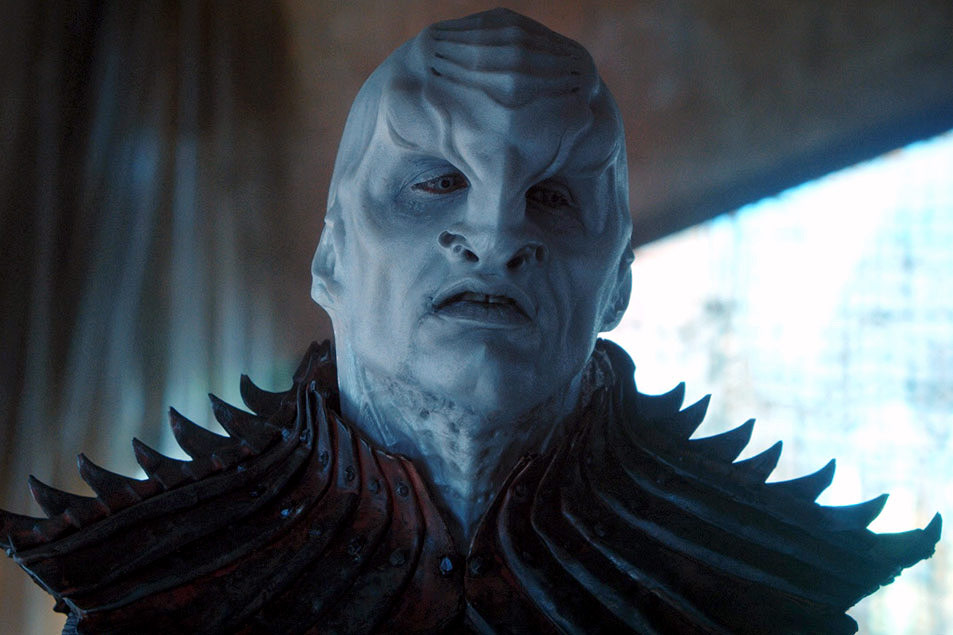
To Burnham’s surprise, and perhaps our own, Mirror Voq’s response wouldn’t be out of place coming from Prime Voq. In both universes Klingons are guided by Kahless, in both universes Klingons wish to remain Klingon, and in both universes humans are seen as a grave threat to these interests.
n the Prime universe, humanity’s threat to Qo’noS comes in the form of their unity with other species, so the Klingon response is to become increasingly xenophobic; in the Mirror Universe, humans are the aggressively xenophobic species so it falls to Klingons to be the unifiers. Context might be for kings, but it’s also for Klingon revolutionaries.
Alongside Voq, we find Mirror Sarek. Like Mirror Voq, this version of Sarek isn’t dramatically different from his Prime counterpart (excellent goatee notwithstanding). As we saw with Mirror Spock the Original Series’ “Mirror, Mirror,” logic is logic no matter which universe you’re in; what’s different is the context in which it’s applied.
Because in both universes Mirror Sarek is a member of an internally peaceful federation of various alien species, it stands to reason that his applications of logic will be similar in both. What differs most between the two iterations of Sarek is his reaction to Burnham’s humanity (used in the emotional, not biological, sense).
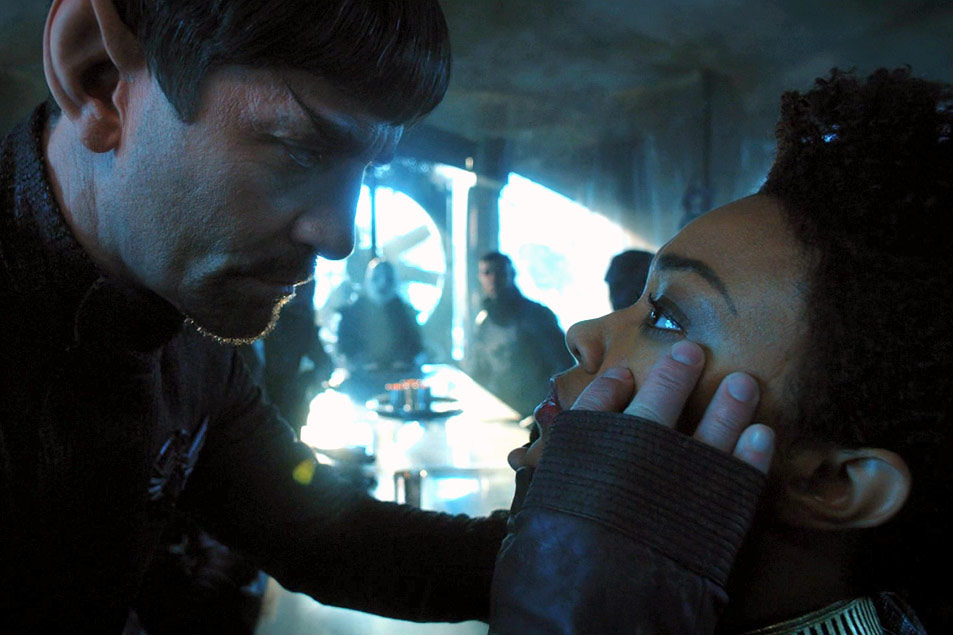
Despite living in a universe in which humans are known for their unyielding cruelty, it is Mirror Sarek – not Prime – who expresses appreciation for the depth of human compassion he finds in Burnham.
His reaction goes beyond simple surprise, revealing an admiration for human emotional complexity that is at the very least hidden in Prime Sarek, if not entirely absent at this stage in his life. The result is a tender moment between a human woman who has been yearning for acceptance of her humanity from her Vulcan father figure, and who had to journey to the Mirror Universe to find it.
However, it does seem a bit odd that Mirror Sarek doesn’t sense his Prime counterpart’s katra fragment that is still kicking about in Burnham’s head. Perhaps something we’ll see in the future… if he survived the Emperor’s orbital assault.
While Burnham, Sarek, and Voq discuss their plans to prevent the destruction of the rebel encampment, Tyler finds himself face-to-face with his Mirror counterpart — though of course, he doesn’t realize it at first. This is the most literal example of mirroring in the episode, and even here the mirror doesn’t function as expected.
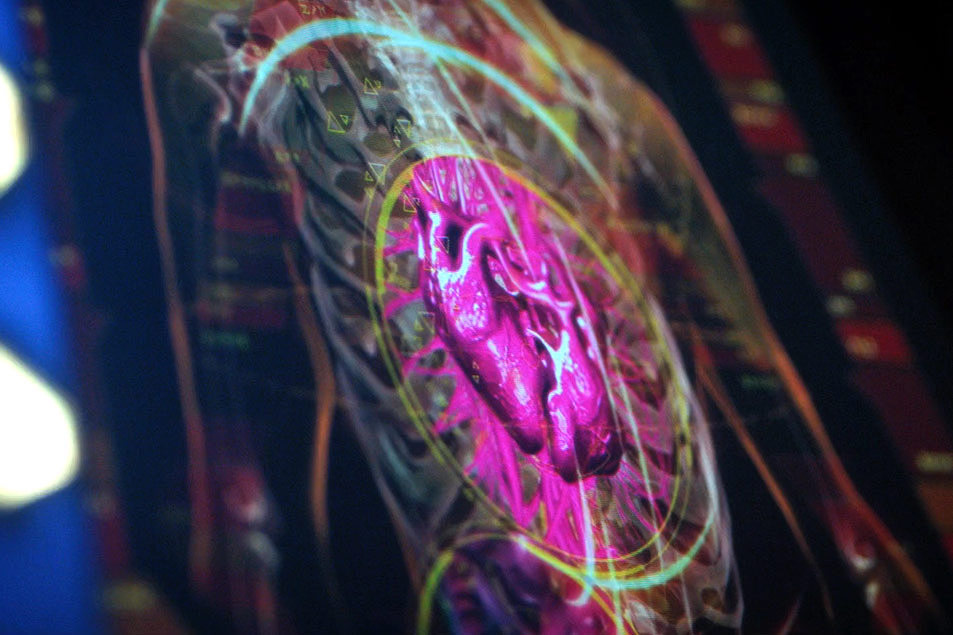
It’s not seeing his own Klingon face that finally causes Tyler to lose control, it’s hearing “himself” speak the name of Kahless. Perhaps L’Rell’s invocation failed because such a fundamental personal truth as one’s identity can only be determined by the self – or one’s other self, as the case may be.
Back aboard the Shenzhou, Tyler finally confesses his mental confusion to a concerned Burnham. However, confession eventually progresses into full transformation as Tyler fades and Voq finally emerges. If Tyler is still present, he’s nowhere to be seen. Voq attempts, with no hesitation whatsoever, to kill Burnham as revenge for her role in the death of T’Kuvma. Without Mirror Saru’s timely intervention, Voq would surely have succeeded.
Burnham allows herself only a moment of private grief before composing herself. Per Terran law, “Tyler” must be swiftly executed for his betrayal; per Federation law, he has a right to due process. Because Burnham is inhabiting both worlds, Tyler will receive both punishments.
As Burnham stoically transports Tyler into the vacuum of space, it’s easy to imagine the pain of her Prime self and the ruthlessness of her Mirror self coming into singular focus for this one task. In her final moments with Tyler, Burnham isn’t pretending, just as Tyler is no longer pretending with her.
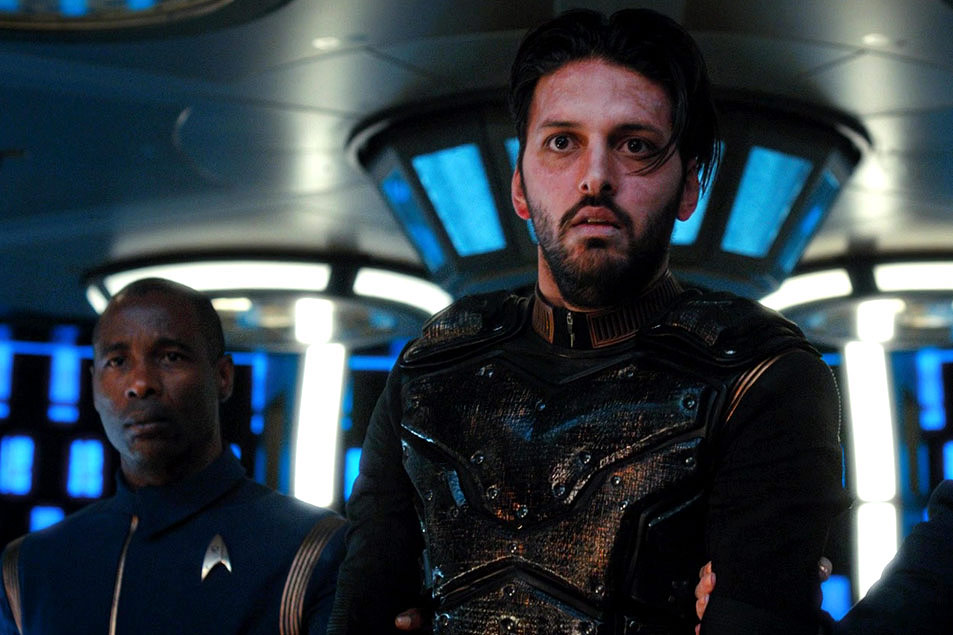
Immediately after being beamed into space, Tyler begins to dematerialize and is beamed aboard Discovery — though with the Shenzhou seemingly a warp-speed journey away, it’s unclear how he could be in transporter range of our heroes. Not only is he being treated according to Federation law, he’s fulfilling his purpose as a spy, albeit an unwilling one.
Prior to his “execution,” Burnham slipped a data disk into Tyler’s pocket knowing he’d be picked up by Discovery. Whether leaving the Shenzhou in compliance with Terran or Federation law, Tyler makes for a useful courier.
The final minutes of “The Wolf Inside” are devoted to one last reveal: the identity of the hitherto ‘faceless Emperor” It comes as no surprise (unless you’re Michael Burnham, it seems) that the emperor is this universe’s version of Philippa Georgiou. As Burnham stands stunned, Lorca, who’s been brought to the bridge during a brief respite from his torture, gives the slightest of smirks.
In an episode full of intrigue and revelation, it’s the potential meaning of that smirk that lingers with me the most.
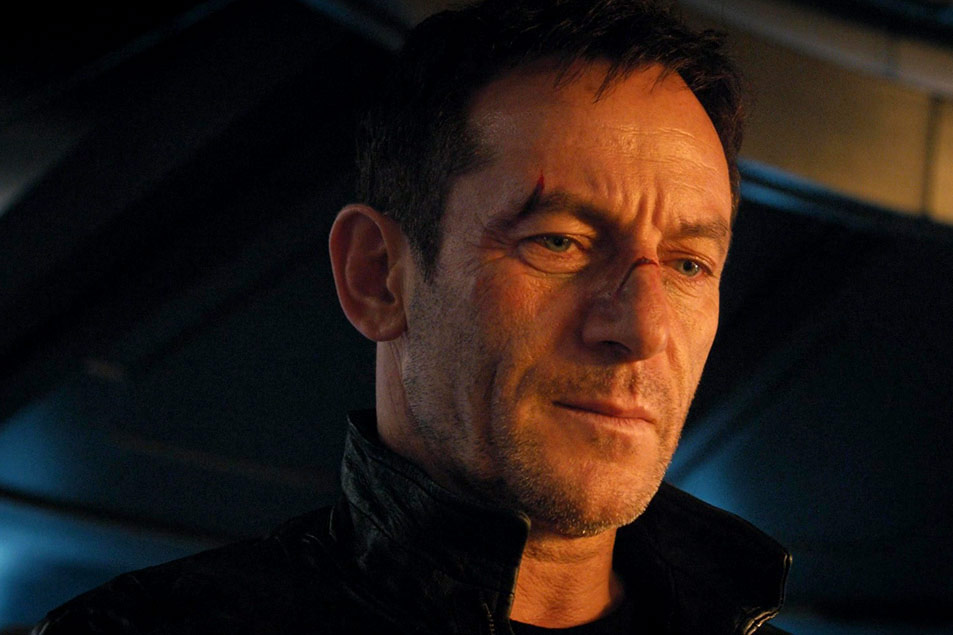
“The Wolf Inside” is a triumphant piece of Star Trek that works on every level; it’s rare that an episode of television can be as gripping as it is nuanced. That “The Wolf Inside” can play so freely with the nature of duality while also handling plot and character with clarity and focus is impressive to say the least.
I can only imagine what’s coming next.
